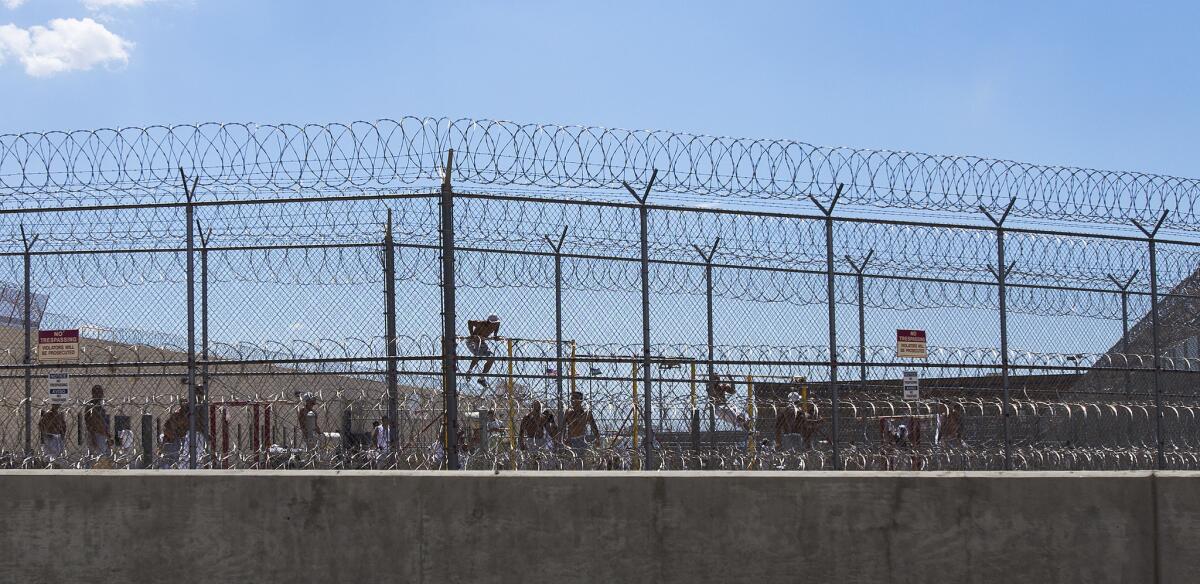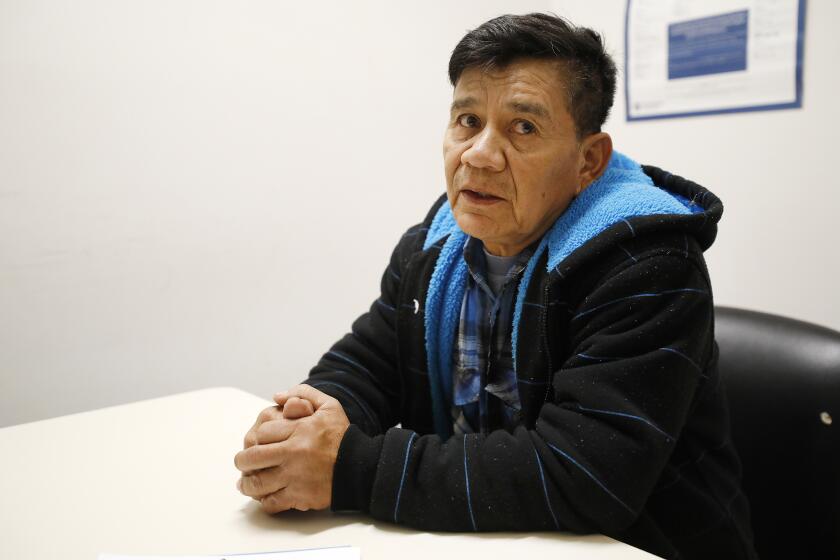Judge rules ICE must allow detainees free, private calls with attorneys during pandemic

A federal judge ruled Saturday that immigration enforcement officials must allow confidential telephone calls between detainees at the Adelanto ICE Processing Center and their attorneys in light of the coronavirus outbreak.
The 15-page ruling by U.S. District Judge Jesus G. Bernal found that U.S. Immigration and Customs Enforcement must reverse a policy that critics said made it virtually impossible for detainees and their attorneys to confer in private at the facility, about 80 miles east of Los Angeles in San Bernardino County.
Bernal wrote that the agency must provide “free, reasonably private legal calls on unrecorded and unmonitored telephone lines, and must devise a reliable procedure for attorneys as well as detainees to schedule those calls within 24 hours of a request.”
The decision came after the American Civil Liberties Union Foundation of Southern California and others sought a temporary restraining order late last month, noting the risks posed by in-person visitation amid the COVID-19 pandemic.
Attorneys for the detainees, which included the Immigrants’ Rights Clinic at Stanford Law School and the law firm Sidley Austin, hailed the ruling for opening other methods for them to communicate with the outside world during the pandemic.
In court filings, ICE has argued that concern about detainees contracting coronavirus is “based on mere speculation” and that releasing large numbers of them would set a precedent that would persist even after the virus subsides. But ICE is instructing field offices to assess and consider for release those who were deemed to be at greater risk of exposure.
“This order will protect detained immigrants’ constitutional right to speak with their lawyers — enabling them to fight deportation and regain their freedom,” Eva Bitrán, staff attorney with the ACLU, said in a statement.
The civil liberties group said telephone access had been severely restricted in Adelanto, one of the country’s largest detention centers, which holds nearly 2,000 people.
The attorneys argued that conversations were not only nonconfidential but also prohibitively expensive — and that the phone system didn’t allow detainees to leave messages if they didn’t receive an answer.
Bernal ruled that the calls must be free — and offer the detainees the ability to leave messages. The judge also said ICE must help detainees and their attorneys exchange private legal documents.
ICE couldn’t immediately be reached for comment. The agency could ask a federal appeals court to stay the order. Another hearing is scheduled for later this month.
The ruling is the latest twist a long-running legal fight between immigration advocates, the agency and its facility contractor, GEO Group Inc., and the emergency situation caused by the virus prompted the judge to act.
It is the latest legal intervention at the facility since the coronavirus outbreak began complicating detention there in recent weeks. As an increasing number of ICE detainees across the country test positive for COVID-19, California lawyers are working to free as many clients as they can by invoking constitutional rights and arguing on humanitarian grounds.
In the last week, U.S. District Judge Terry J. Hatter Jr. has ordered at least 10 people released from Adelanto.
More to Read
Sign up for Essential California
The most important California stories and recommendations in your inbox every morning.
You may occasionally receive promotional content from the Los Angeles Times.












